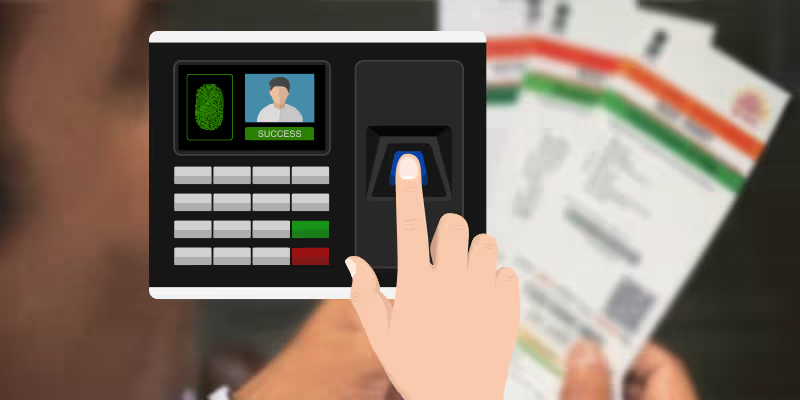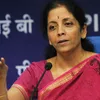We are in the most exciting phase of e-governance in the history of India, says NSDL e-Gov Chief
NSDL, which has been delivering citizen services online since 1996, has now ventured into education financing and skill development for the underprivileged. YourStory caught up with NSDL e-Gov chief Gagan Rai to know more.
The National Securities Depository Limited (NSDL) e-Gov was set up as India’s first electronic securities depository back in 1996. (‘Depository’ refers to an organisation that safeguards bonds, shares, stocks, and other assets that are traded in the securities market.)
When NSDL e-Gov began operations 24 years ago, India was yet to get broadband internet – VSNL publicly launched in 1997. And, the dotcom boom was yet to happen. A decade later, in 2006, when Indian framed its National e-Governance Plan, NSDL e-Gov became more critical to the government.
E-governance made all citizen services available – safely and quickly – through electronic means. It includes everything from tax collection and distribution of public benefits to skill development.
Between then and now, NSDL e-Gov has been of the leading technological infrastructure providers in India. It has worked with multiple ministries and government agencies like the Election Commission to execute some of the most complex nationwide projects (PAN cards, eKYC, eSign, Aadhaar identification, and National Pension System).

But, the times are changing now. And, India has new challenges.
We are a very young nation, with over 60 percent of our population under the age of 25. NSDL believes that this presents a “unique” opportunity to create a highly-skilled workforce in the country, bridge the education divide, and improve the citizens’ socio-economic condition.
In one of the major developments this year, NSDL e-Gov now also serves as an educational finance facilitator for loan-seekers, mostly underprivileged students. It also ventured into overseas markets to execute Aadhaar-like identification projects.
YourStory caught up with Gagan Rai, MD and CEO, NSDL e-Governance, to talk about the current state of e-governance in India, NSDL e-Gov’s new initiatives focussed on education and skill development, its recent international foray, and much more.
Edited excerpts below.
YourStory: Where does India stand when it comes to e-governance vis-a-vis nations like Estonia, which are considered quite advanced on this front?
Gagan Rai: We are in the most exciting phase of e-governance in the history of India. Information technology is bringing a great transformation in the governance spectrum. Our country jumped 22 places to break into the top 100 of the United Nations E-Government Development Index (EGDI) in 2018.
Be it scholarships, Direct Benefit Transfers (DBTs), ration cards, LPG subsidies – the government has ensured that fakes and duplicates are removed and genuine, eligible citizens benefit in a transparent way.
We still have a long way to go, compared to some developed nations like Estonia. Our lack of physical infrastructure and digital literacy are some of the hurdles that we are yet to overcome. But as time progresses, I think we will be able to find ways and means to overcome these challenges.
YS: How has the NSDL e-governance platform evolved since inception? What drove the changes?
GR: Over the years, we have used our project management capabilities and technology expertise to deliver state-of-the-art e-governance solutions and helped governments identify and clear bottlenecks, promote transparency, reduce service delivery costs, and deliver public services efficiently.
We have served almost all citizens via one or the other services in areas like taxation, pension, and unique identification. We have been able to manage these large-scale projects successfully.

NSDL e-Gov helped India break into the top 100 of the United Nations E-Government Development Index in 2018.
We have also transformed the capital markets, with transactions now being settled via demat or electronic modes. And, we have continuously put in efforts to push India up on the Ease of Doing Business Index by simplifying complex, time-consuming processes into comprehensive, electronic services.
YS: Which are the key sectors that have been impacted by e-governance?
GR: I think e-governance has an important role to play in every sector. We have tapped into the high-demand sectors like public service delivery, banking, financial services, insurance, and health. If you go by the numbers, we have touched several millions of citizens at some stage of their lives through thousands of our service centres.
We also recently ventured into the education space by developing platforms for education loans (Vidya Lakshmi), scholarships (Vidyasaarathi), and skill development loans (Vidya Kaushal).
ALSO READ

YS: Elaborate on NSDL e-Gov’s three new education initiatives - Vidyasaarathi, Vidya Lakshmi and Vidya Kaushal. Who are the biggest beneficiaries?
GR: We have developed these initiatives to serve three different objectives.
Vidyasaarathi allows underprivileged students to avail education finance in the form of scholarships. These scholarships are provided by corporates who wish to spend their CSR funds on education. The schemes are specially designed along with the Tata Institute of Social Sciences (TISS) to fulfil the aspirations of economically weaker students and also encourage merit-based scholarships.

NSDL e-Gov has created a one-stop portal where students can apply for education loans and track updates seamlessly.
Vidya Lakshmi is supported by the Ministry of Human Resource Development, Ministry of Finance, and the Indian Banks’ Association. It provides students with easier access to education loans as well as government scholarships through a single portal. The portal hosts a Common Education Loan application form for all banks, and it allows students to track their application status and directly communicate with the banks.
Over one million students have already registered on the portal and are availing the benefits. About 36 banks (public and private) are integrated into the system, collectively providing over 80 loan schemes to the students.
Vidya Kaushal was initiated by the National Skill Development Corporation (NSDC) under the Ministry of Skills Development and Entrepreneurship. Under this, economically weaker students can avail loans for skill development courses. These loans, unlike education loans, are currently provided only by NBFCs.
YS: What are the ground benefits offered by these education initiatives and portals compared to other scholarships and schemes?
GR: The Vidya Lakshmi portal has developed a mechanism to track the status of student applications and communicate online with banks to ensure a smooth, hassle-free process of loan procurement.
As Vidya Lakshmi is supported by the ministries, it brings a lot of credibility to the portal. Vidyasaarathi, on the other hand, helps fund providers manage educational scholarship schemes and promote skill development.

Vidyasaarathi scholarship awardees
It even allows corporates to design schemes, matching their respective CSR objectives. For example, there are specific scholarships for girl students who want to pursue a master’s degree or for students in Data Science/Technology, etc.
Vidya Kaushal provides students with skill course counselling and loan facilities along with a single application form for multiple financing options. This is a first-of-its-kind project. It also provides banks with authenticated leads for loans.
For the students, the portal provides access to a wide range of skill loan financing options, courses, and centres, and an easier way to select training centres as per their needs.
YS: What are the hurdles and challenges NSDL e-Gov faces in executing these programmes at a large scale?
GR: We have faced some very unique challenges while implementing various service infrastructures. As the scale of these projects is huge, the initial cost of implementation is also very high.
Also, as most of these projects are extremely new and unique, it needs awareness amongst the public which requires time and effort.
As an implementation agency for such projects, we need to train various stakeholders like employees, service centres, and citizens to ensure more efficient delivery.

NSDL e-Gov has executed some of the most complex nationwide projects such as Aadhaar, PAN cards, eKYC, etc.
YS: Which government agencies does NSDL e-Gov work with? And how are you leveraging corporate partners for these initiatives?
GR: We work closely with multiple government agencies for designing, managing, and implementing e-governance projects. There are about seven ministries (Finance, HRD, Textiles, Electronics and Information Technology, Information and Broadcasting, Telecommunications, Skills Development, and Entrepreneurship) and the Election Commission of India.
We are also associated with multiple state governments and have various corporates acting as fund providers. These include ACC Cement, TATA Realty, JSW Foundation, Schindler, CARE Ratings, BOSCH, and others.
YS: Is India adequately protected when it comes to data? How do you ward off concerns over data privacy?
GR: NSDL e-Gov is very sensitive about the protection and privacy of the data that it handles and therefore it has implemented adequate security controls around the personal data it obtains, processes and stores in its system. To top it up, we have also got certified for ISO 27001 standards for its Information Security Management System.
YS: You’ve recently partnered with an MNC to foray into international markets? What are the big opportunities NSDL e-Gov is chasing abroad?
GR: A majority of developing countries are now looking at unique identity solutions for their citizens seriously.
Hence, programmes like National ID, eKYC, eSign are being looked at. Many governments are also considering old-age security solutions like Pension Systems.
So, it is our endeavour in the next three to five years to develop e-governance solutions in areas like taxation, pension, identification, health, and the judiciary.
YS: Which markets and economies are in immediate focus?
GR: One of the fastest-growing regions of the world, Africa, needs a ready-to-implement technology to ensure financial inclusion of its citizens.
The Middle East too has a lot of scope for e-governance services, and South Asian markets like the Philippines and Malaysia could also be prospective markets for NSDL e-Governance products.
We offer niche and customised technology solutions for better governance, and we believe we can replicate our India success story across the globe.
(Edited by Saheli Sen Gupta)











